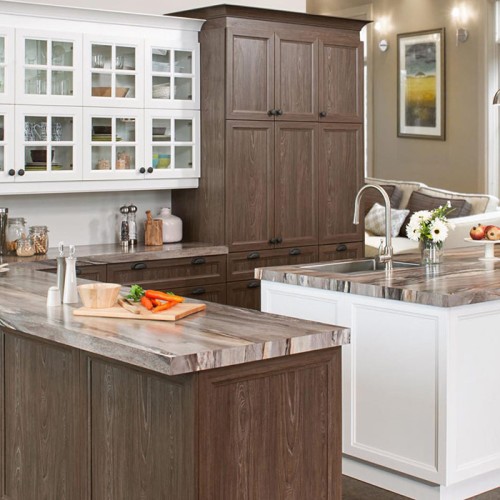It’s well known that an impressive kitchen is one of your best sales arguments when selling a property. According to the Appraisal Institute of Canada, renovating your kitchen can yield a 75% to 100% return on investment.
To find out more, read our article, “Is it worth renovating before selling?”
Of course, modern appliances and sparkling faucets are immediate eye-catchers. But the choice of countertops for the kitchen remains just as important to charm the buyers.
Here are the advantages, inconveniences and maintenance details for the most sought-after countertops in interior design.
You might also be interested in our eco-friendly tips and tricks for spring cleaning.
Laminate countertops
Advantages
- Laminate offers different finishes that imitate marble, quartz and wood, for a fraction of the price. It’s available in a wide variety of colours and patterns to fit your decor.
- Installation is quick and inexpensive.
- Resistant to shocks and scrapes, laminate has a lasting quality.
Inconveniences
- Visually, the effect of a laminate countertop is less luxurious. Even when carefully applied, the joints remain apparent.
- Laminate is sensitive to heat. It’s therefore important never to place hot pots directly onto it, as damaged surfaces are hard to repair.
Maintenance
- Use low-abrasive cleaning product.
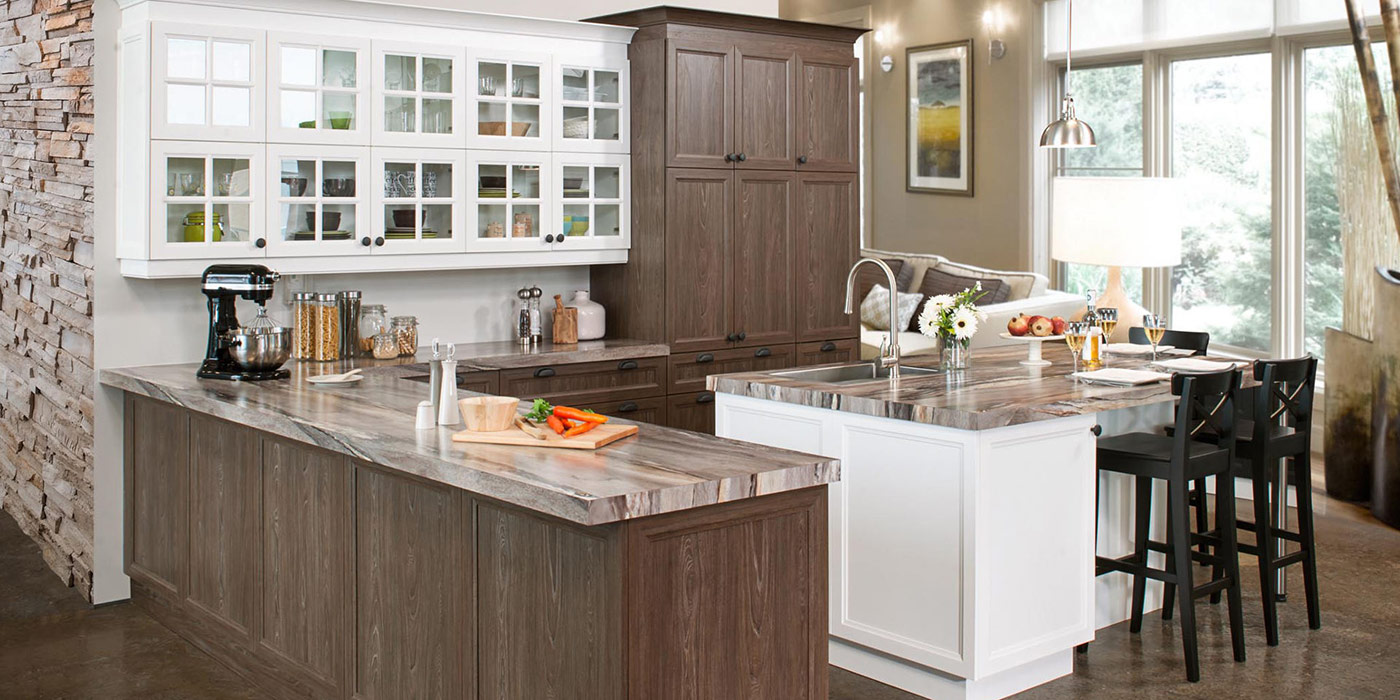
Photo credit : Cuisines Action
Granite countertops
Advantages
- Granite is a natural stone that adds character.
- It resists very well to heat, scratches and stains.
- It is sold in matte, polished and antique versions, and exists in many colours. You’ll inevitably find colour variations on sheets from the same slab.
- Its life expectancy is exceptional.
Inconveniences
- Its eccentric look does not necessarily suit every style.
- It’s more expensive than laminate.
- Granite must be treated with a sealer every year, which means extra costs.
Maintenance
- Avoid dulling the stone’s shine by using a low-abrasive solution.
- For deep stains, use a product made especially for granite.
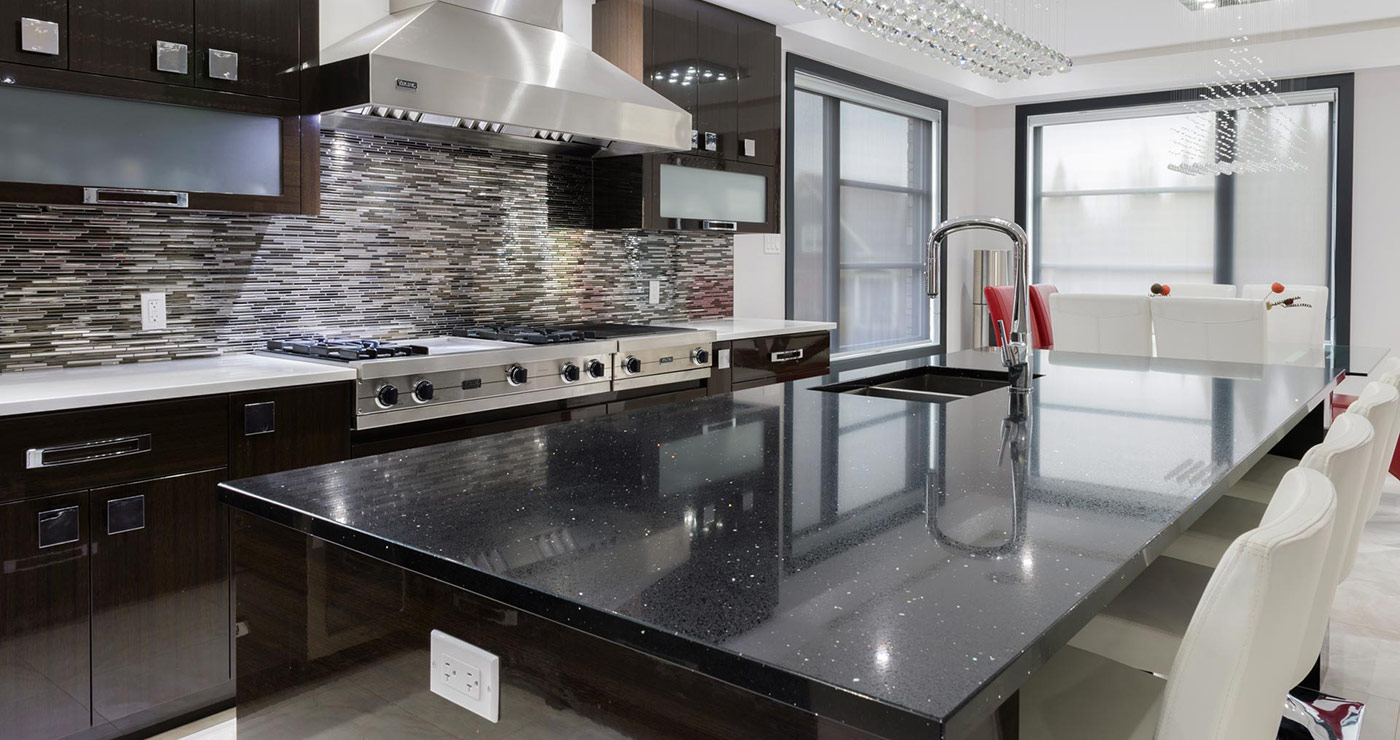
Photo credit : National Granit
Massive wood countertops
Advantages
- A wooden counter, something like a butcher’s block, makes a statement. It has a look that is both authentic, and original.
- It’s easy to install and can easily be fixed.
- Certain types of wood, such as teak, are impermeable and are perfectly adapted for kitchens.
Inconveniences
- The wood is sensitive to heat, shocks and scratches.
- It is relatively expensive and requires more maintenance than other types of counters. A sealer must be applied regularly.
Maintenance
- Wood absorbs stains deeply, which is why it’s important to clean up spills as soon as they occur.
- Apply natural oils and sand the wood as needed.
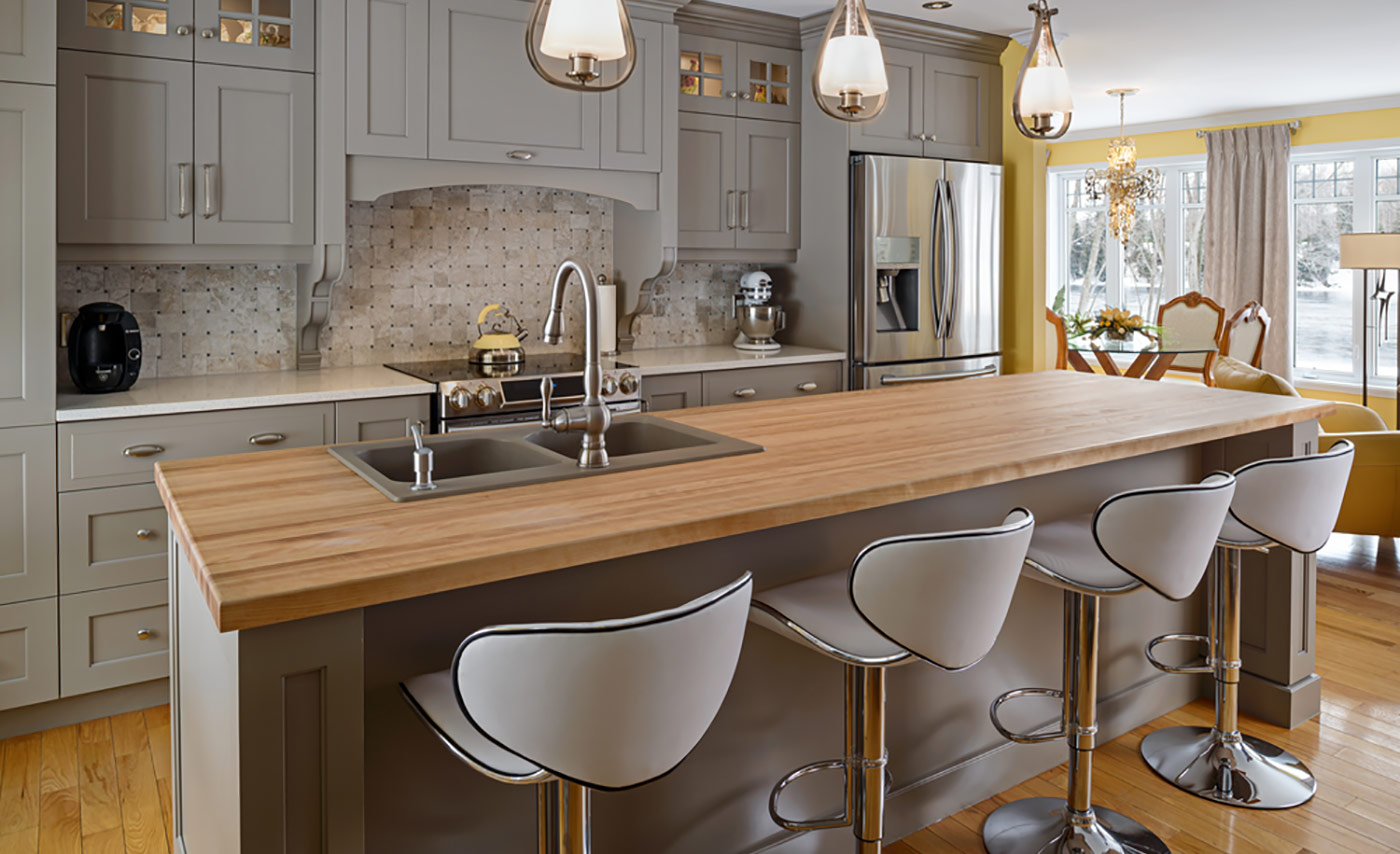
Photo credit : Cuisines Jacques Bernier
Quartz countertops
Advantages
- Quartz is offered in many shades and varieties. Unlike granite, it has a more uniform finish.
- Beyond its decorative appeal, quartz is very resistant to shocks and scratches.
- It is an antibacterial, watertight, durable stone.
- Unlike granite and wood, quart counters do not require any sealant.
Inconveniences
- They are relatively expensive.
- The edges can chip.
- Quartz does not tolerate heat very well, heat mats are required for anything over 150°C
Maintenance
- Use a soft cleaning product.
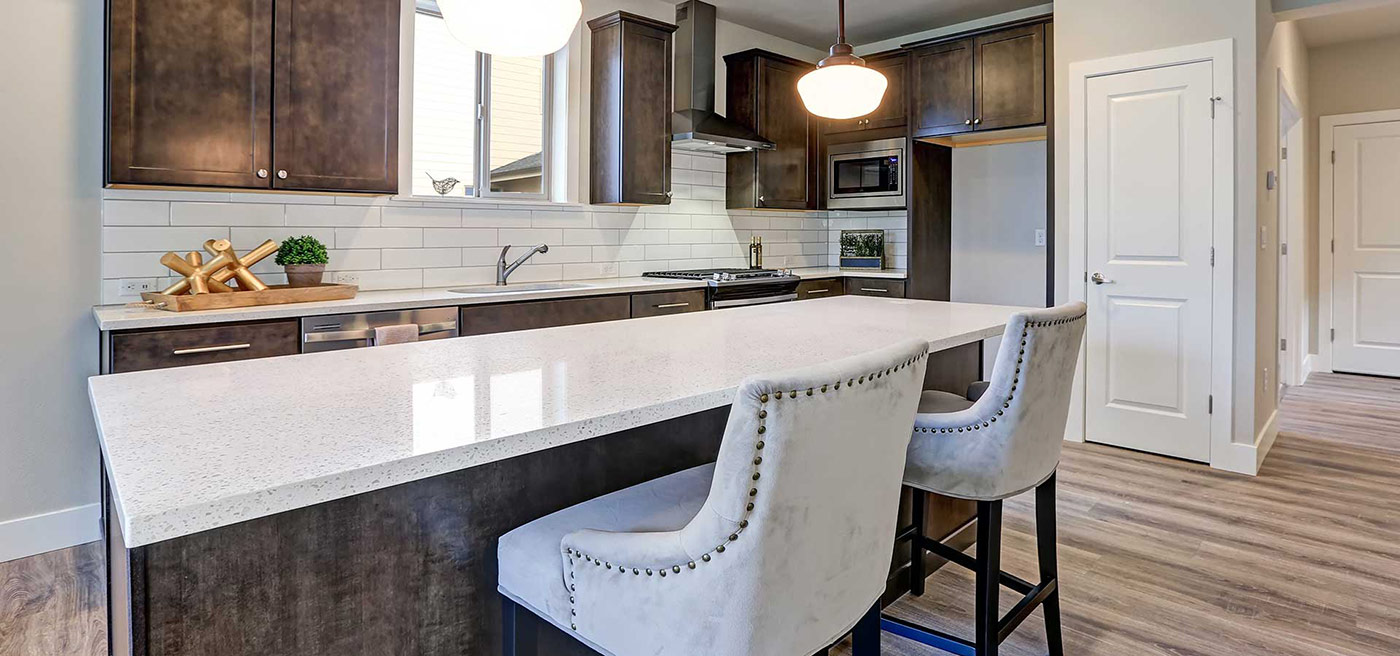
Crédit photo : Cuisines Exclusives Design Sherbrooke
Marble countertops
Advantages
- Marble never goes out of style, and adds class to any kitchen.
- There is a wide range of shades.
- Its surface resists well to shocks, wear and heat.
Inconveniences
- Obviously, marble is an expensive stone.
- A marble countertop can be very heavy, requiring you to strengthen the cabinets underneath.
- It is sensitive to acidity and grease.
- It requires a high level of maintenance.
Maintenance
- Marble stains easily, stains must be wiped up immediately.
- Sealant must be applied regularly.
- Use a cleaning product with a neutral pH.
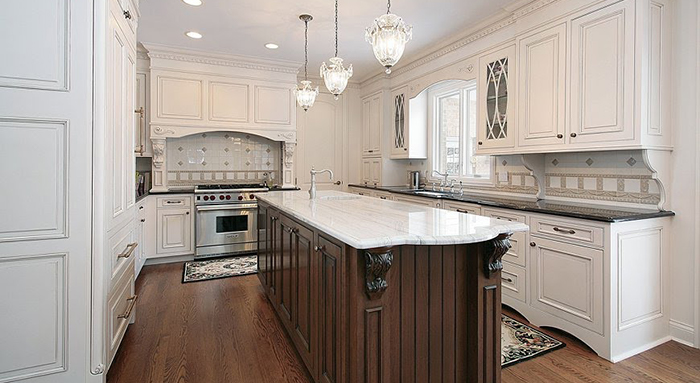
Photo credit : Granite M3R
Finally, read our article to find out more about interior design.
Renovations in sight? Contact a Multi-Prêts mortgage broker to find out more about your financing options, no matter what the project you have in mind.
Key takeaways
- According to the Appraisal Institute of Canada, renovating your kitchen can yield a 75% to 100% return on investment.
- Noble materials require more maintenance.
- Most surfaces require the regular applying of sealant.

